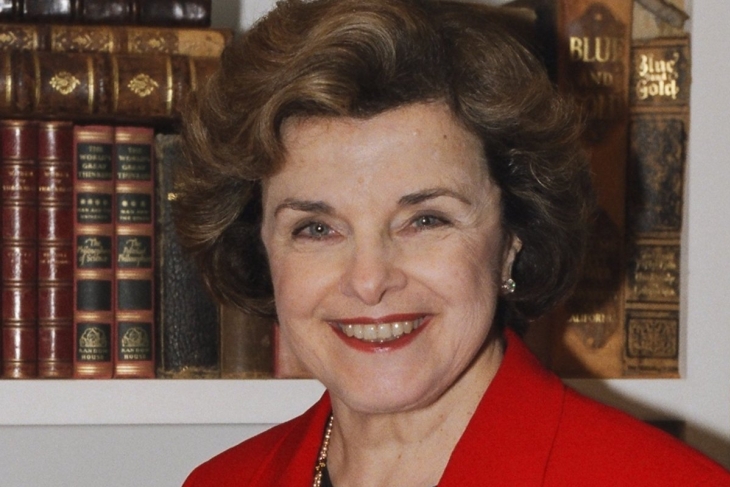Democratic Senator Dianne Feinstein of California died on September 29. She was ninety years of age and remarkable in many ways, beginning with being the first woman to serve as mayor of San Francisco after her predecessor was assassinated in 1978.
She was also the first woman elected to the Senate from California (along with her colleague Barbara Boxer, elected in the same year), the longest-serving woman in the U.S. Senate, and the chamber’s oldest member at the time of her death. The New York Times obituary described her as “A tough campaigner who often embraced conservative ideas….”
Education Week called her “a pragmatic lawmaker who reached out to Republicans and sought middle ground.”
That middle ground was manifest in her tireless work with both Democrats and Republicans to ensure that families, especially those most in need, had more choices of schools for their children.
Feinstein was born in San Francisco on June 22, 1933, to a Jewish physician father, Leon Goldman, and a Catholic Russian American mother, Betty Rosenburg Goldman. She would attend and, in 1951, graduate from Convent of the Sacred Heart Catholic High School in San Francisco, as Sacred Heart Catholic High School was for boys only.
Feinstein would later recall that her enrollment in that Catholic high school was a difference-maker in her life. She could understand the plight of families who had no quality educational options in their own circumstances.
In 2003, much to the annoyance of the powerful California Teachers Association, Feinstein cast the deciding vote in the U.S. Senate to create the District of Columbia private school voucher program, which exists to this day.
Her support for this program raised broader issues among Democrats about the need for broad bipartisan support for what was then the emerging charter school movement and other education reform efforts. Those conversations inspired the creation a few years later of Democrats for Education Reform.
As a member of the powerful Senate Appropriations Committee, she supported increased funding for charter schools. In 2022, this work earned her an award from the California Charter Schools Association. It described her as “among the most vocal and consistent supporters of charter public schools in the U.S. Senate for the past thirty years.”
She and South Carolina Republican Senator Tim Scott led the bipartisan 2022 effort to roll back the proposed rule from the U.S. Department of Education that would have placed restrictions on federal funding for charter schools. Their letter to the U.S. Secretary of Education, signed by two other Democratic Senators and three other Republican Senators, described how those changes would “not prioritize the needs of students and limits high quality choices to certain families.”
Her death is a loss to all those advocates working to give families and children more choices of schools, and to those families and children who now have the opportunity to exercise that choice. And more than anything else, her bipartisan approach to doing this will be missed and should inspire those who worked with her to continue that work.


